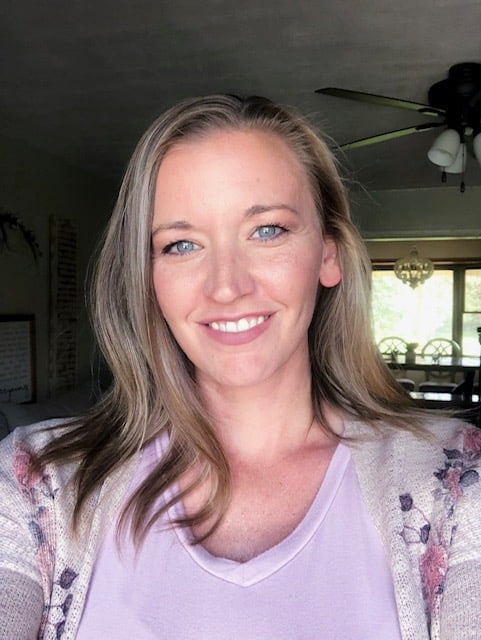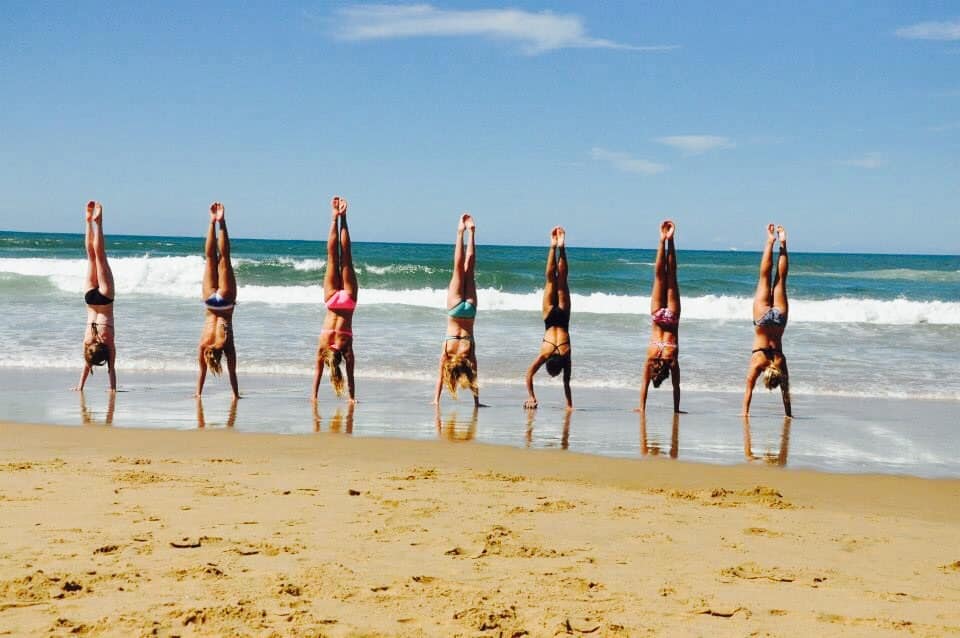This post may contain affiliate links. Click here to read my full disclosure.
Remember when you were a Senior in high school and you received that very first credit card pre-approval offer in the mail?
You were probably so excited and felt so grown-up and responsible. If I had been able to receive financial advice to my younger self before receiving that first offer, I could have saved myself some pain and trouble.
Maybe you were totally blessed, and your parents taught you about how to manage your finances including exactly what to do and what not to do.
But if you’re like me, your parents struggled, living paycheck to paycheck and didn’t know the first thing about managing money, let alone how to teach you the proper skills to get ahead in life.
I’m not blaming my parents. I’m simply stating the facts. Our kids need someone to turn to, to look up to, to teach them about assets and liabilities and budgeting and investing and the D-word (debt).
If I had been able to offer financial advice to my younger self, I could have saved myself so much turmoil and stress.
I’ve since come up with a way to pay off all debt including a $150,000 mortgage in less than 10 years. Oh, the financial lessons I’ve learned in my 37 years of life!

Financial Advice to my Younger Self
Focus on your strengths
This can be taught and instilled from a VERY young age. You know that old saying “If at first, you don’t succeed, try try again”?
I get the idea behind it, but why aren’t we focusing on our strengths instead of trying to develop our weaknesses?
This is related to finances because often our kids will follow a career path that they feel obligated to follow (perhaps to follow in Mom or Dad’s footsteps), and they end up going to college to get a degree (or attempt to get a degree…many students drop out prior to graduation) so that they can work at a job that they absolutely hate.
And more often than not, parents and their kids are using student loans to pay for the college degree they just had to have, only to turn around and completely change career paths.
Don’t be the parent that encourages your kid to do something they’re not in love with. Teach our kids to hone in on their strengths and their passions, and you might be able to avoid some major disappointment later on in life.
As a high school student, find someone to mentor you.
Having an adult to look up and bounce ideas off of is vital to a child’s ascension into adulthood. To many students, this person could be a parent, teacher, coach, pastor, or family friend.
With the internet, you also have so many opportunities to reach out to others for support and encouragement.
If you’re reading this right now and need to bounce an idea off someone, leave a comment in the section down below and I’ll get right back with you.
My parents weren’t my biggest supporters in life, so I turned to teachers and my friends’ parents for help. Just make sure you have someone to talk to. Your school years can be very lonely if you feel like you have no one to turn to. Don’t do life alone. I want to help you!
Don’t you even think about applying for that credit card.
Read this next sentence very carefully. The credit card companies and banks are NOT your friends!
They are not here to help you through this transition to #adulting. Credit cards are super risky. I know it will be tempting with offers like “0% introductory interest rate for 36 months“! (I swear they lengthen that term a little bit more every year).
The problem with the introductory rate is that when you rack up a card but can’t pay it off before the 0% intro rate expires, your minimum payment might go from $50 per month up to $200 per month (with $150 of that being interest payments alone).
Another thing they don’t tell you in the main body of the pre-approval letter is that if you make a payment even a day late, in most cases, your introductory rate is null and void, and your rate skyrockets to upwards of 30% APR.
Do you like money? Keep your money, and stay away from the credit cards! My first credit card was a Walmart credit card, and it was a hungry college kid’s nightmare!
And if you’re thinking you’ll just get a credit card to build your credit, read this post first. You can build your credit score without a credit card easy!
Partying is not life.
Respect yourself and this life you’ve been given. There’s a big, huge world out there waiting for you to explore it!
Quick story: When I was in my freshman year of college, I partied like there was no tomorrow. I spent every extra dollar I had on beer and “going out”. I got a ticket for driving under the influence of alcohol when I was 19, and the judge sentenced me to 5 days in jail. 5 days?!
What happened to the drunk tank overnight…for one night? I also had to pay a $500 fine, complete community service, take a driver’s safety course, and lost my driver’s license for 6 months. After that, I went into a horrible depression.
It was a massive downward spiral that ultimately caused me to attempt to take my own life. I had no self-love. No self-respect. I was numb. After that, I made a series of choices that would forever change my life (some positive, some not so much).
My point is, don’t think you have to follow the crowd. Love yourself. Honor yourself. Honor God. Always do what’s right. Don’t party your life away. It’s okay to have some fun. Just be careful and remember one bad choice can lead to a whole mess of problems. I wish I’d have realized this sooner.

Choose college carefully.
I hinted at this above in bullet #1. Make sure that college is the appropriate career path for you.
Some students are destined to be a Veterinarian or a General Surgeon or a Lawyer or an Architect. Of course, you need a college degree to work in any of those positions.
It’s okay to skip college if you know beyond a shadow of a doubt that you want to become a Master Colorist, an Automotive Mechanic, or a Realtor®.
You could even start a blog like this one! I wrote about how to start a blog here. If a 6-year-old kid made $11 million last year on YouTube, the world is yours, my friend. Don’t hold back!
Develop a plan for your career path as early as possible.
So we know not all colleges are created equal, BUT in most situations, a piece of paper is a piece of paper, right? So a Bachelor’s degree from a tiny 4-year University, such as Oklahoma Panhandle State University, is literally equal to a college degree from the University of Oklahoma.
The difference is OPSU charges $7,674 for in-state tuition and $13,233 for out-of-state tuition vs OU charging for in-state: $11,538 and out-of-state: $26,919.
Plus the cost of living is much lower at the smaller school. You can also attend a junior college or community college for the first 2 years to get your basics out of the way and then transfer to the bigger school if need be for the experience or networking opportunities.
Also, keep in mind that you can and should work during college (especially if you can get a job in your field). A good example of this would be if you are going to become a veterinarian, obtain your vet technician certificate (I believe it’s a 10-month program) and work for a seasoned vet around your school schedule.
You’ll learn more during your on the job training than you ever could in the classroom, and you can also make sure that it’s what you want to do for the rest of your life. Nursing students can become a CNA and work the night shift (instead of partying).
Finance majors can get a job as a part-time teller in a bank or credit union. Ask any banker, and they’ll let you know real quick which job is the toughest in the bank.
The teller is the face of the company and has to learn to look for opportunities to cross-sell relevant products to clients. You’ll learn sales skills, people and customer service skills, and you will have a good understanding of credits, debits, and real-life banking scenarios.
One last (very important) piece of financial advice to my younger self would be to start living off of 80% of your take-home pay from the beginning.
Always, always give 10% to church, charity, or something you believe in. And always pay yourself first by investing a minimum of 10% into retirement.
If I had done this from a young age, I would have never missed that 20% of my income. It would have just been normal.

Life is a collection of memories and experiences. There are ups and downs. I am so grateful for God’s grace and am on the journey to a renewed spirit, free of perfectionism. Perfection Hangover offers the sober truth – no filter.


